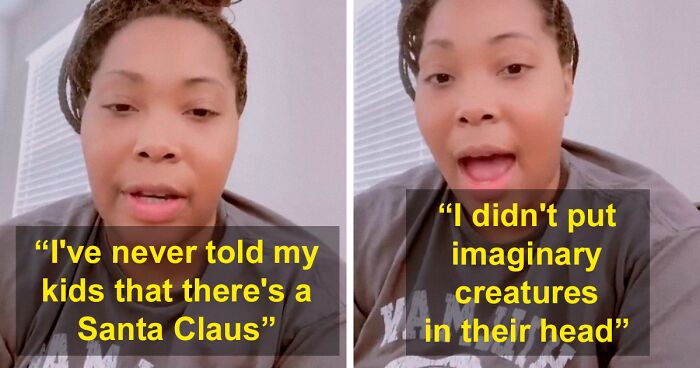
Mom Says She’s Not Going To Lie To Her Kids About Santa Or The Easter Bunny, Gets Criticized
Image credits: nevadashareef
Image credits: nevadashareef
Vicki Broadbent, a writer, director, broadcaster, and founder of the parenting blog Honest Mum, thinks whether you share with your kids that Santa, the Easter Bunny, and the Tooth Fairy are real or not, is your own personal choice as a parent and understands why this mother wanted to be upfront and honest with her children.
“She’s sharing one of her key values with them early on and this can avoid disappointment and can help them feel more responsible and mature,” Broadbent told Bored Panda.
It’s clear that she wants the best for her little ones
Image credits: nevadashareef
Image credits: nevadashareef
Broadbent herself has found that time in childhood when she believed in Santa and the gang to be quite magical and she personally wanted the same for my children. “I felt it contributed to the precious innocence of childhood,” she said.
“When I finally told my then 10-year old that Santa wasn’t real, he felt sad that I hadn’t waited longer and given him another year as Christmas now didn’t feel as special,” the author of The Working Mom: Your Guide to Surviving and Thriving at Work and at Home recalled. “It was pretty remarkable that despite his maturity that he was still believing at that point and I felt as he was entering puberty, it was time to inform him of the truth. My 8-year-old still believes in all of the above but I’m not sure for how long. I think personally, I find it harmless for children to believe in these mythic and traditional characters but equally advocate honesty with my kids (in an age-appropriate way).”
“I fully see why the mother decided not to pretend to her children and as she said in her video, they still enjoyed the occasions regardless. I’d quite like not having to remember to leave money under my son’s pillow every time he loses a tooth, thank you very much!”
Image credits: nevadashareef
Image credits: nevadashareef
Image credits: nevadashareef
Image credits: nevadashareef
Just like Nevada, David Kyle Johnson, Ph.D., a professor of philosophy at King’s College in Pennsylvania, also argues that parents shouldn’t intentionally trick their children into believing that Santa actually exists.
“The reasons parents avoid the Santa-lie are often straightforward,” he wrote on Psychology Today. “Many simply think it’s wrong to lie to their children—and they have a good point. Although few philosophers (besides Kant) maintain that lying is always immoral, they do suggest that justifying consequences are necessary—a lie has to do a greater, justifying, good. But what justifying good does the Santa-lie produce?”
“A sense of wonder? Perhaps, but I could create wonder in my kids by tricking them into thinking that events of Star Wars actually occurred a long time ago in a galaxy far, far away… but would we call that a moral lie?”
Image credits: nevadashareef
Image credits: nevadashareef
Image credits: nevadashareef
If you, however, are raising your kids with these mythical stories, you know that one they will figure them out. We all do. “Often it is other children who have older siblings in a school setting for eg who end up informing other children that Santa etc isn’t real. The child will then often come to the parent for confirmation either way and it is then that you should judge whether it is time or not to reveal the truth or whether it’s reasonable to keep up the pretence or magic (however you want to view it),” Vicki Broadbent said.
According to the Honest Mum, This will depend on how mature your child is and how they might take the news. “By the time your child has started high school at 11, it is unlikely they will still believe. Request they keep it from younger siblings too if you don’t want your other children to find out at that point. I’ve found most under 9s we know still believe but from 10 onwards they don’t.”
Over 400,000 people have already watched Nevada’s TikTok
@nevadashareefStitch this…..I’m interested in seeing different parents styles#stitch #fyp #viraltiktoks #momtiktok #parenting101🕺🏾🤣♬ original sound – Nevada Shareef
Vicki Broadbent of Honest Mum believes it is your parental choice whether or not you want to raise your kids with Santa and the gang
Image credits: honestmum
But beware. “Discussing this can also open up other questions about religion and science so I would work out how you want to handle any topics and questions that might spin-off from this as children will request what is and isn’t real (the answers will be based on your beliefs),” Broadbent advised. “Prepare yourself as these questions might surprise you. My parenting mantras are to ‘trust your gut’ and ‘always be prepared’ so consider those when it comes to this subject!”
Vicki Broadbent also has a TikTok account and one of her videos went viral after she uploaded it to Facebook where it received over 3 million views. She has personally found it to be more positive and upbeat than other platforms (even though Broadbent realizes it’s not the case for all), and the comment section under Nevada’s video is a good example of that. It’s quite civil!
But their opinions on the topic are mixed
They are her kids, it's her choice on how to raise her kids. My question is how did she handle things when other kids, and I am sure there were a lot, would question her kids' beliefs during those holidays? How did she work around the holiday seasons with images of Santa everywhere? Did her kids miss out on watching all of the Christmas movies and tv specials? Also, how does she feel about fantasy based children movies? I am genuinely curious and I am not bashing her. Just a conversation I am interested in learning more about.
I never believed in Santa, because I already believed in Sinterklaas (a Dutch and Belgian figure who gives kids presents on his birthday, December 6th) and my parents thought getting a lot of presents once a month was enough. Which is understandable. So I never got any presents for Christmas, but I did watch a lot of Christmas movies and I enjoyed them even though I didn't believe in Santa. So it's possible! But of course, every kid is different, so her kids could react differently
Load More Replies...So this is how it was explained to me, and now I explain it to others. Santa Clause isn’t a literal person, he’s the personification of the spirit of giving. When you are old enough to understand you too become Santa Clause. There are no lies in it, only a changing perspective as you mature.
Due to the religion I was raised in, I wasn't lied to about Santa, the Easter Bunny, the Tooth Fairy and all the rest of that childhood bunk. In first grade as Christmas approached, my teacher took me outside and asked me not to tell the other children that Santa wasn't real. I never felt deprived. I had, (and still have) an extremely active and vivid imagination. We had celebrations on random days, for no reason at all. Those days were always so special, because every gift came from the heart. Not because of a societal convention.
They are her kids, it's her choice on how to raise her kids. My question is how did she handle things when other kids, and I am sure there were a lot, would question her kids' beliefs during those holidays? How did she work around the holiday seasons with images of Santa everywhere? Did her kids miss out on watching all of the Christmas movies and tv specials? Also, how does she feel about fantasy based children movies? I am genuinely curious and I am not bashing her. Just a conversation I am interested in learning more about.
I never believed in Santa, because I already believed in Sinterklaas (a Dutch and Belgian figure who gives kids presents on his birthday, December 6th) and my parents thought getting a lot of presents once a month was enough. Which is understandable. So I never got any presents for Christmas, but I did watch a lot of Christmas movies and I enjoyed them even though I didn't believe in Santa. So it's possible! But of course, every kid is different, so her kids could react differently
Load More Replies...So this is how it was explained to me, and now I explain it to others. Santa Clause isn’t a literal person, he’s the personification of the spirit of giving. When you are old enough to understand you too become Santa Clause. There are no lies in it, only a changing perspective as you mature.
Due to the religion I was raised in, I wasn't lied to about Santa, the Easter Bunny, the Tooth Fairy and all the rest of that childhood bunk. In first grade as Christmas approached, my teacher took me outside and asked me not to tell the other children that Santa wasn't real. I never felt deprived. I had, (and still have) an extremely active and vivid imagination. We had celebrations on random days, for no reason at all. Those days were always so special, because every gift came from the heart. Not because of a societal convention.

 Dark Mode
Dark Mode 

 No fees, cancel anytime
No fees, cancel anytime 












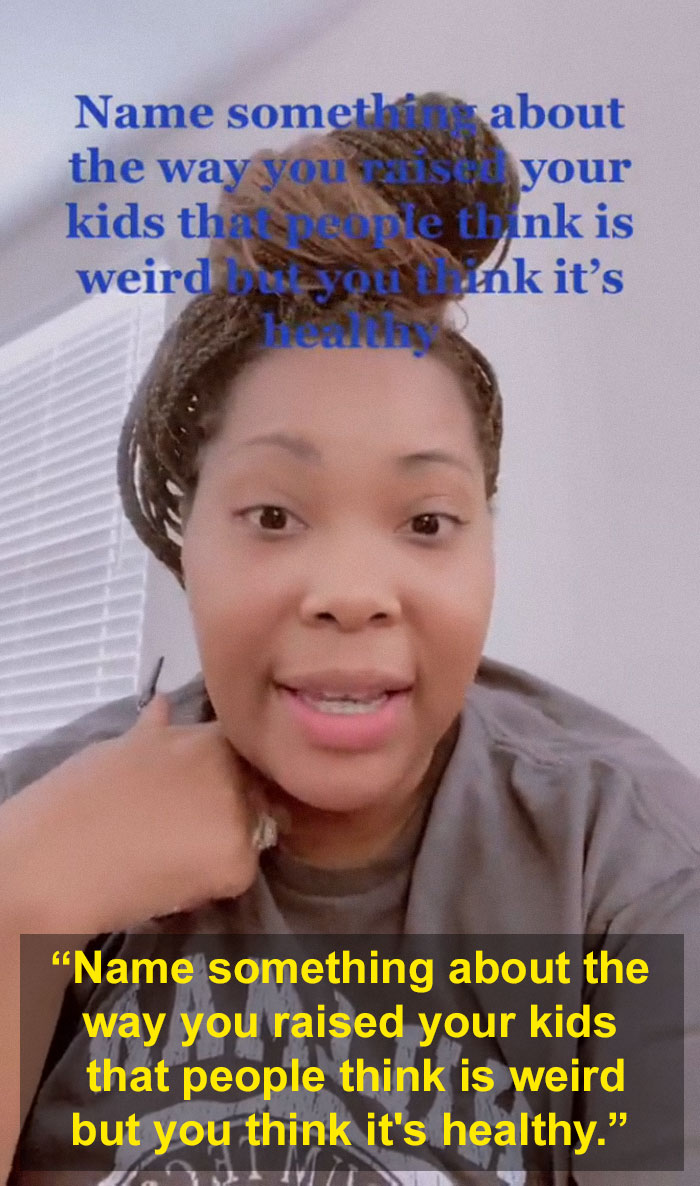
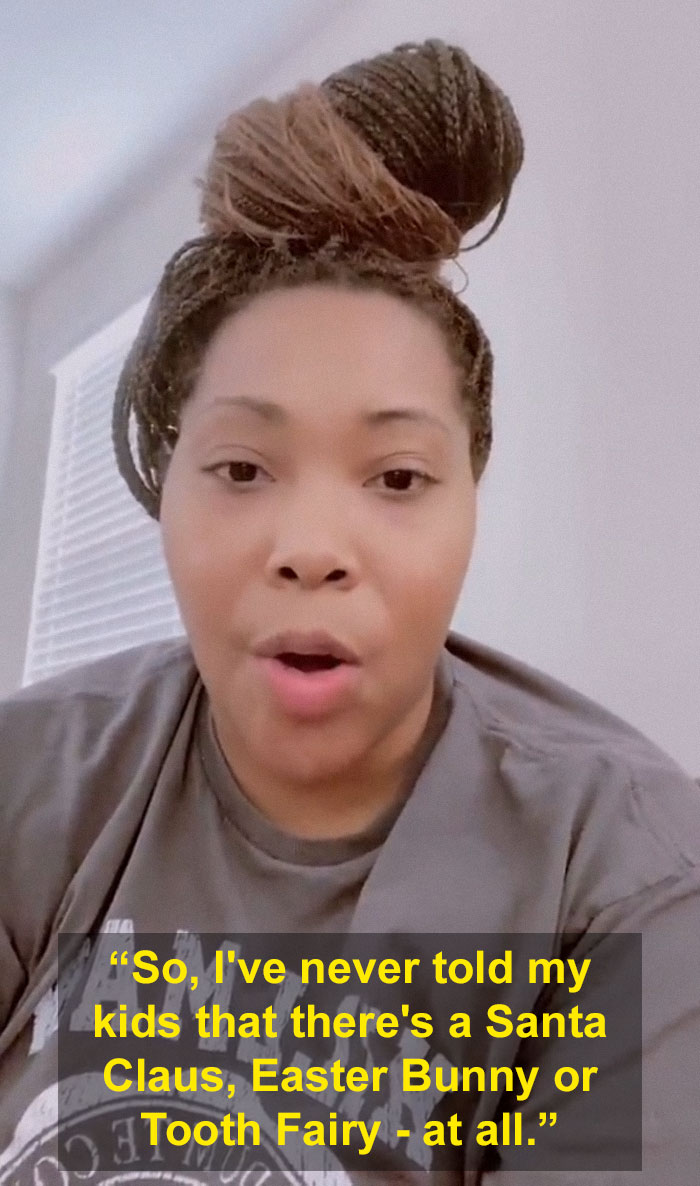
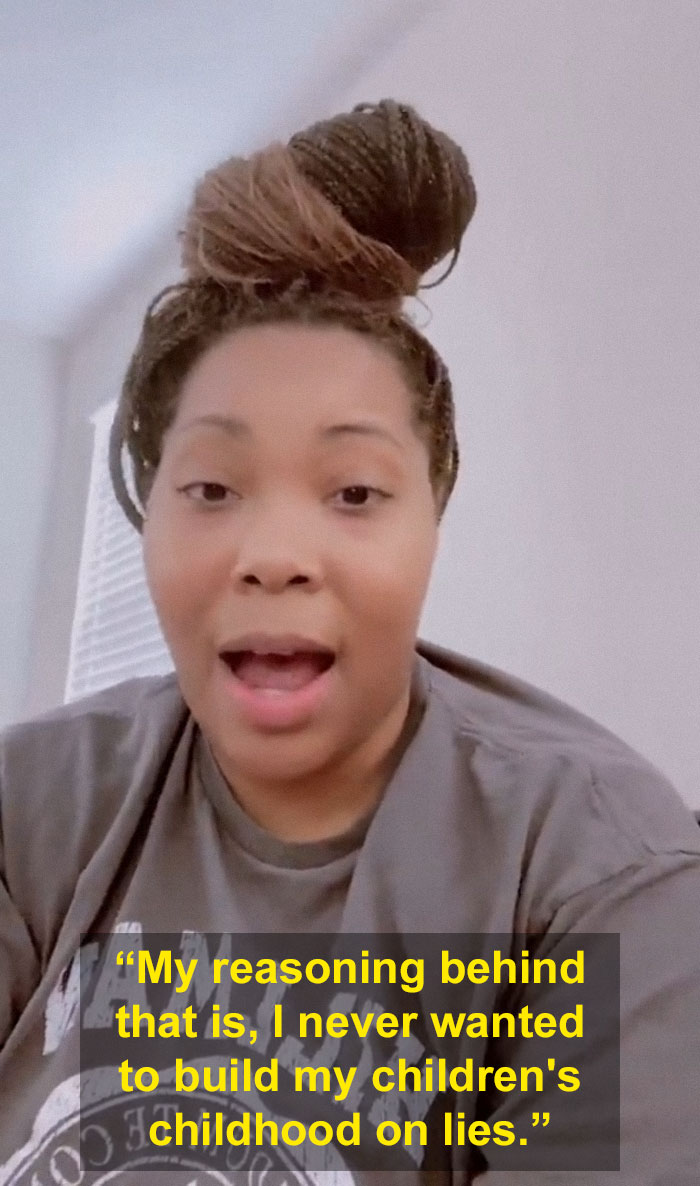


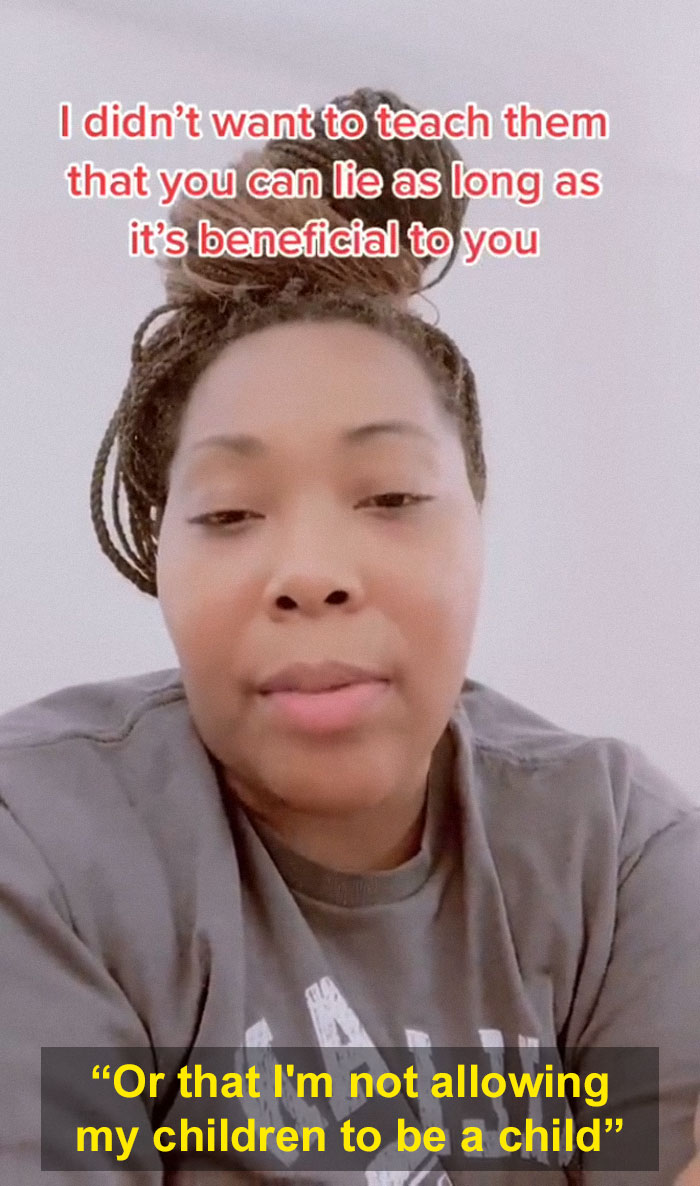
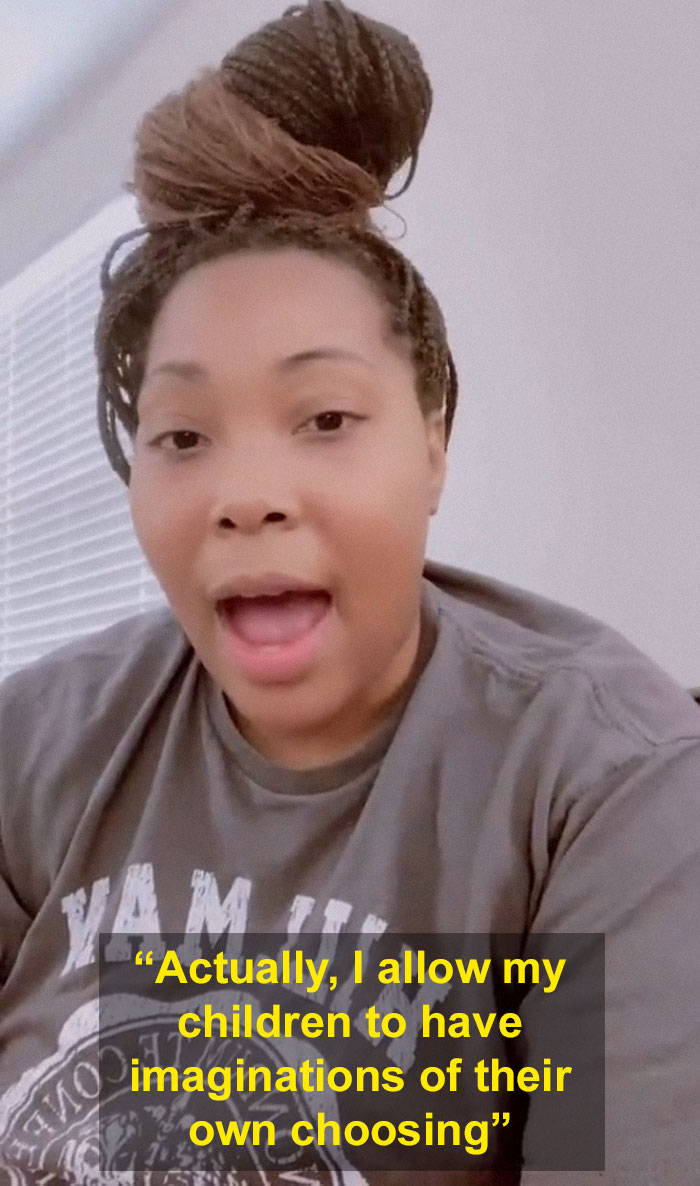
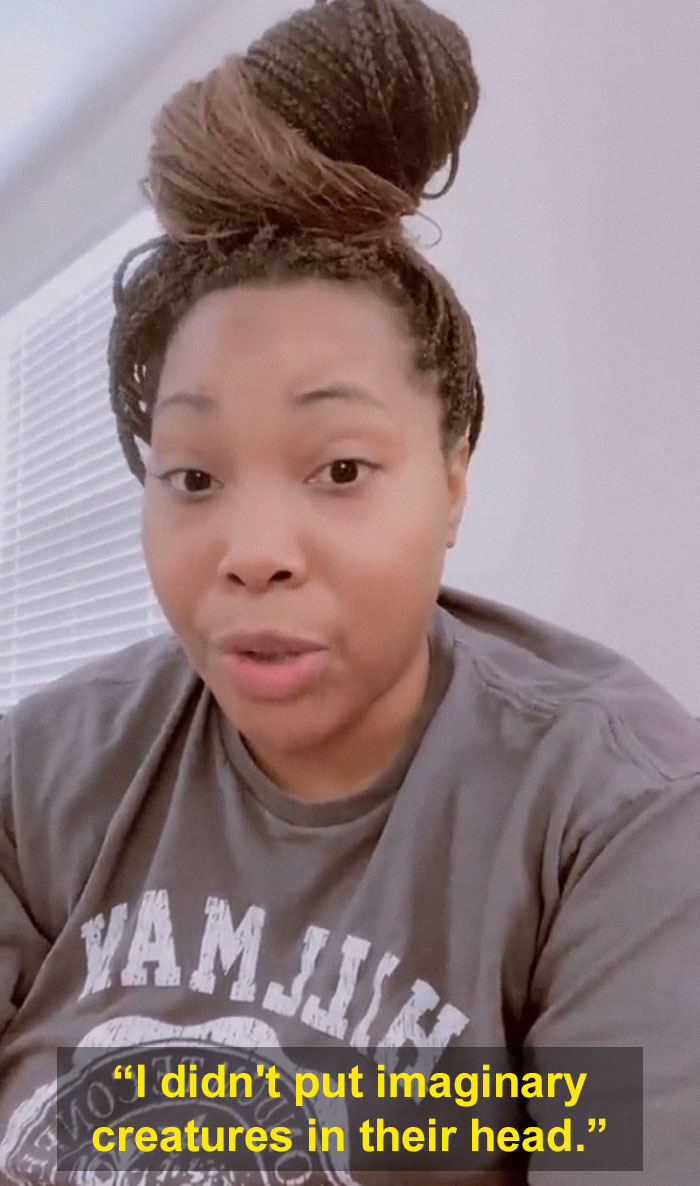
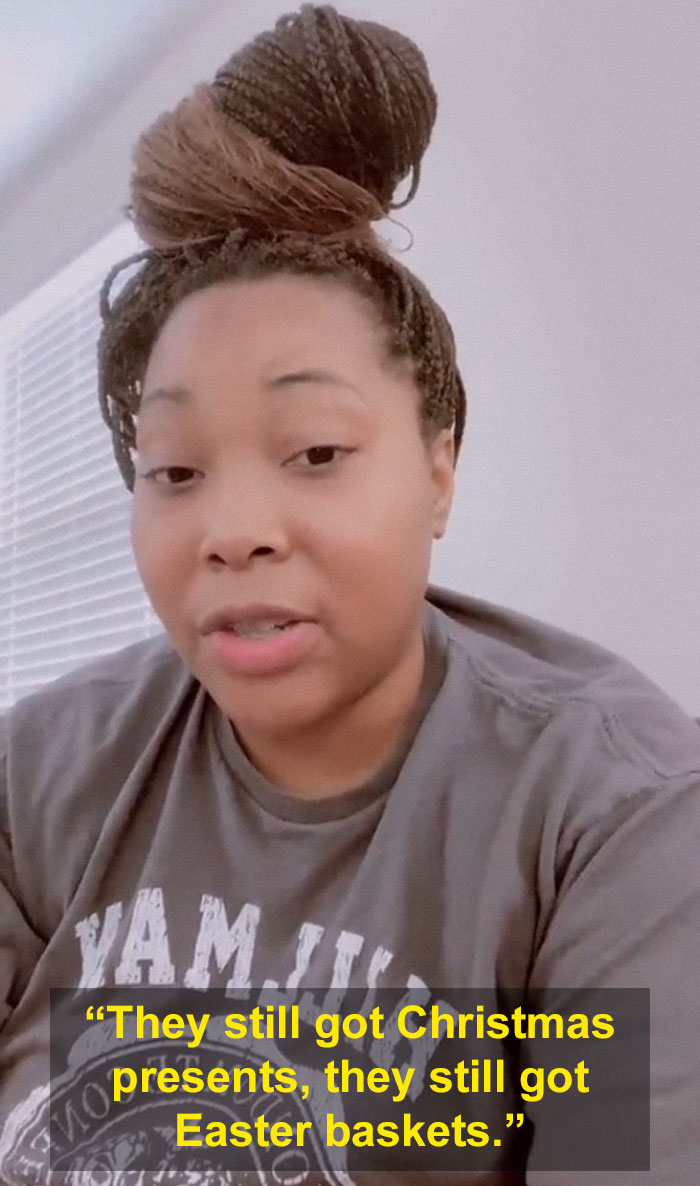
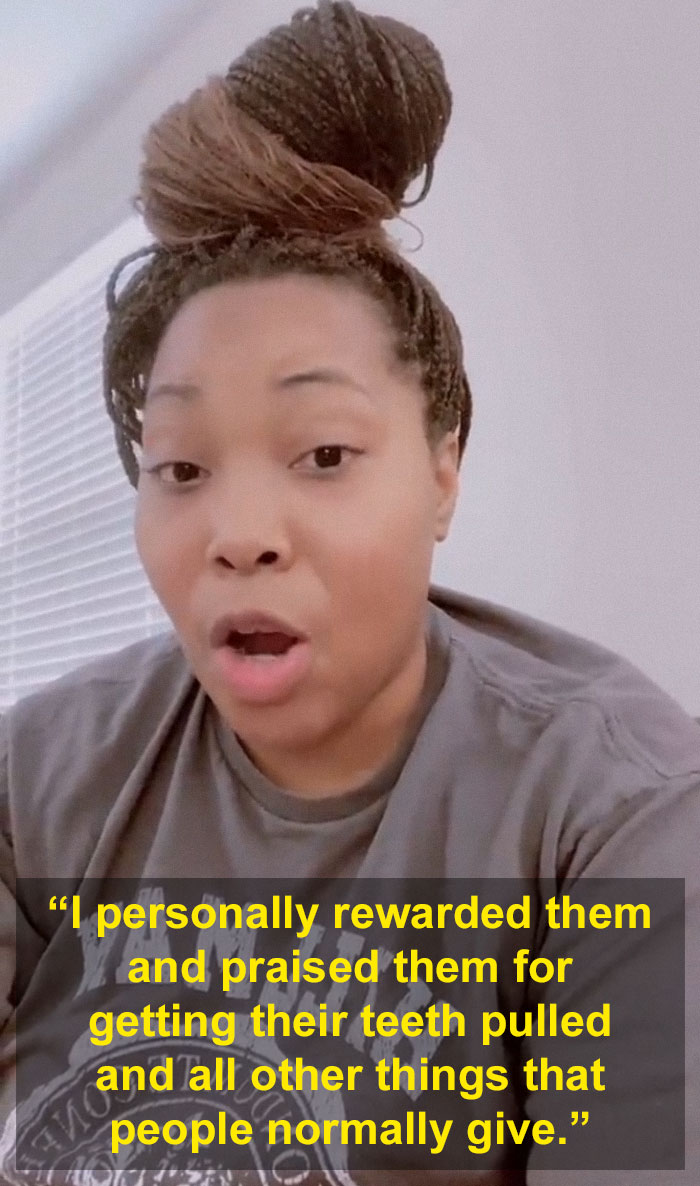
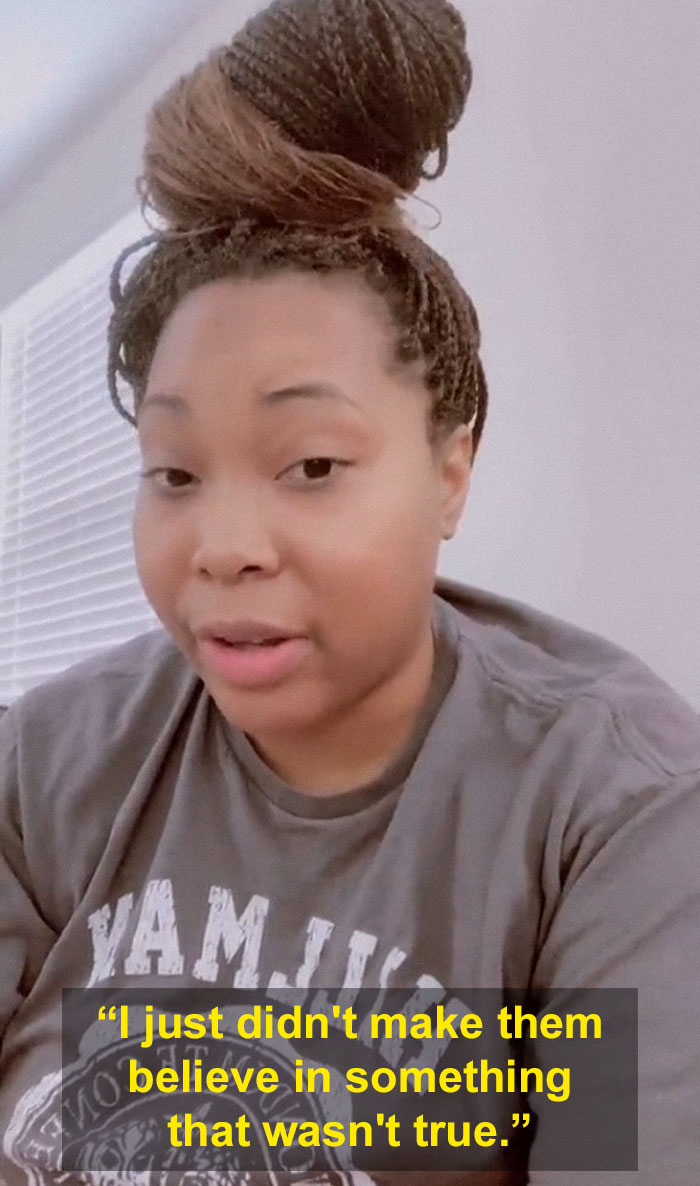

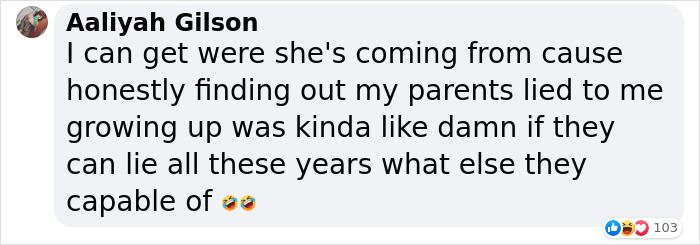

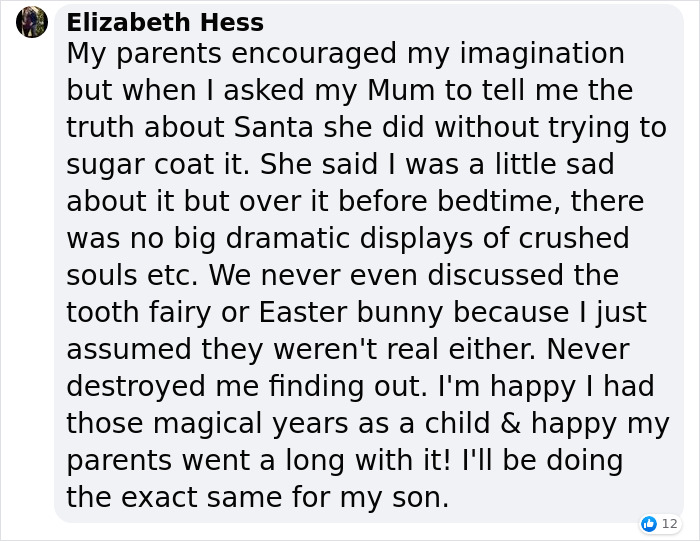
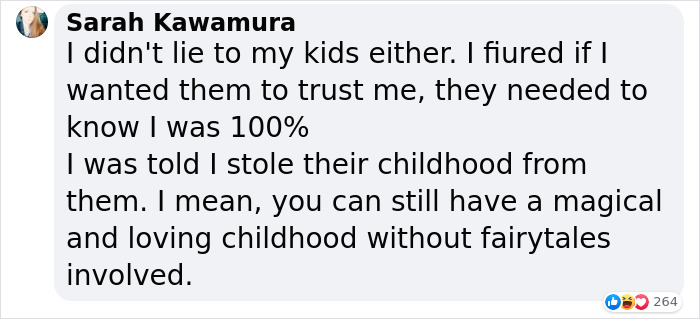
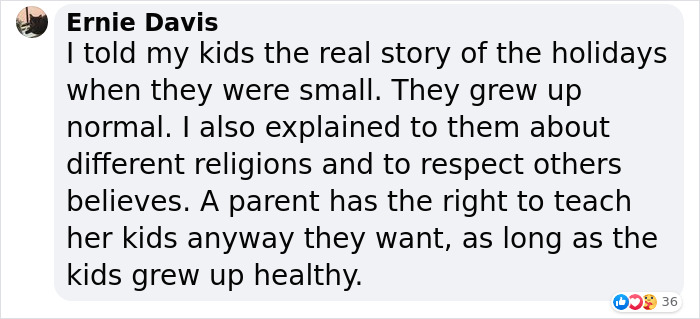

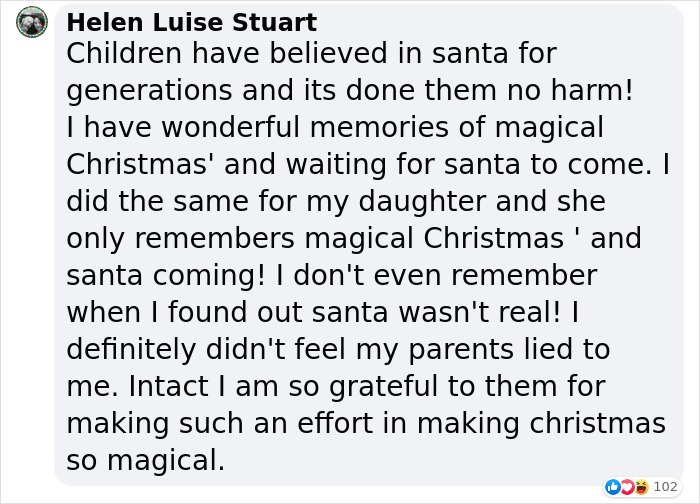
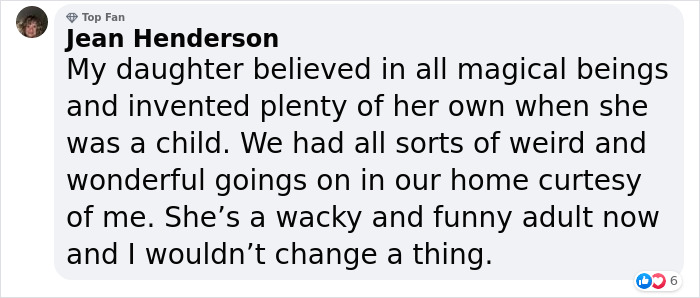
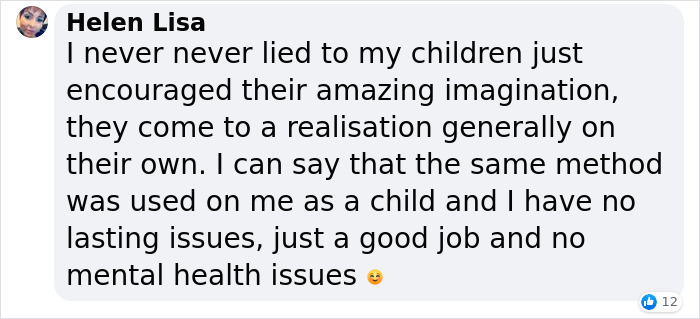
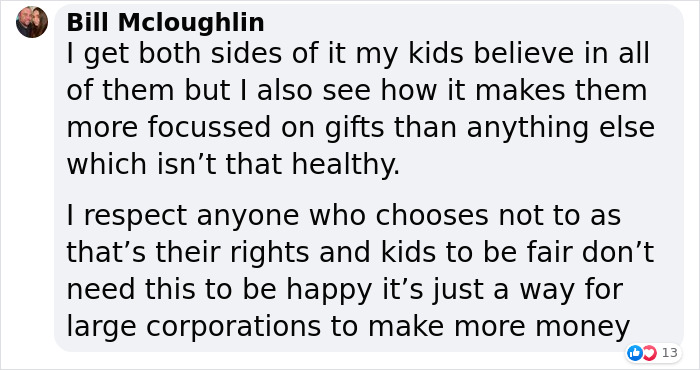







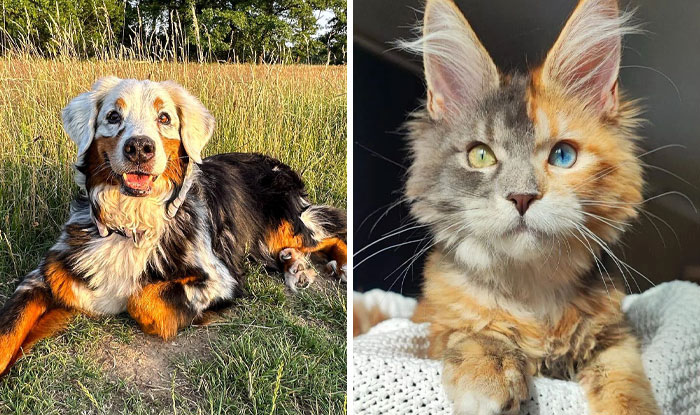


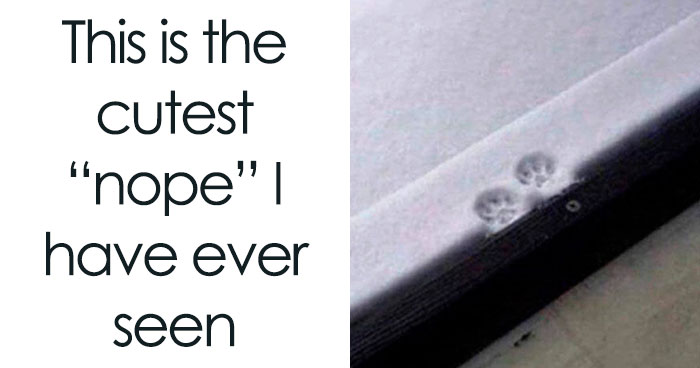
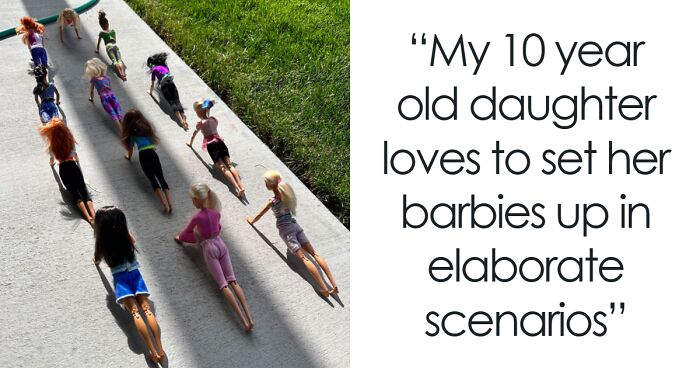

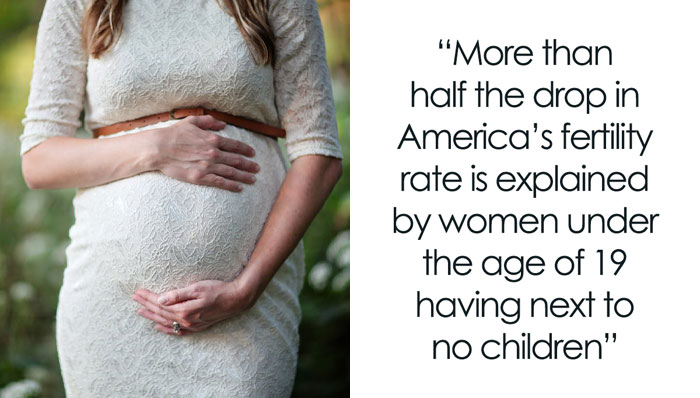







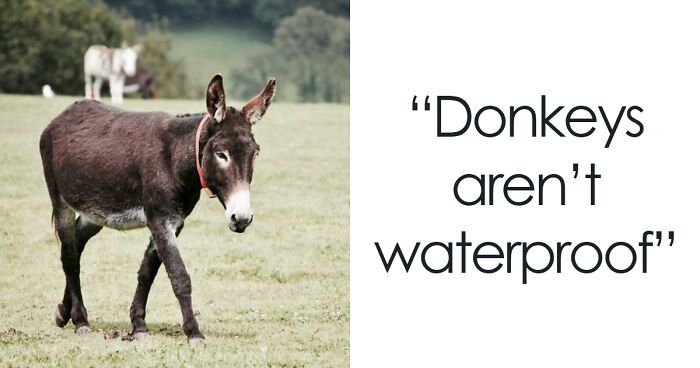



22
93